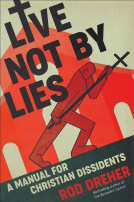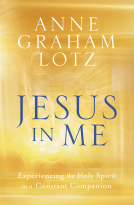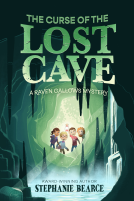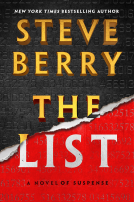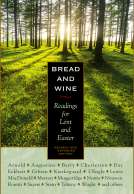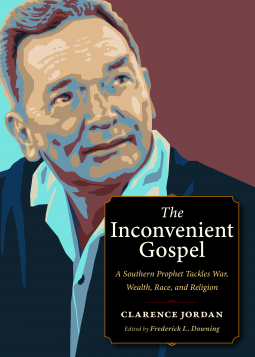
The Inconvenient Gospel
A Southern Prophet Tackles War, Wealth, Race, and Religion
by Clarence Jordan
This title was previously available on NetGalley and is now archived.
Send NetGalley books directly to your Kindle or Kindle app
1
To read on a Kindle or Kindle app, please add kindle@netgalley.com as an approved email address to receive files in your Amazon account. Click here for step-by-step instructions.
2
Also find your Kindle email address within your Amazon account, and enter it here.
Pub Date Oct 25 2022 | Archive Date Oct 25 2022
Plough Publishing | Plough Publishing House
Talking about this book? Use #clarencejordan #NetGalley. More hashtag tips!
Description
On 440 depleted acres in Sumter County, Georgia, a young Baptist preacher and farmer named Clarence Jordan gathered a few families and set out to show that Jesus intended more than spiritual fellowship. Like the first Christians, they would share their land, money, and possessions. Working together to rejuvenate the soil and the local economy, they would demonstrate racial and social justice with their lives.
Black and white community members eating together at the same table scandalized local Christians, drew the ire of the KKK, and led to drive-by shootings, a firebombing, and an economic boycott.
This bold experiment in nonviolence, economic justice, and sustainable agriculture was deeply rooted in Clarence Jordan’s understanding of the person and teachings of Jesus, which stood in stark contrast to the hypocrisy of churches that blessed wars, justified wealth disparity, and enforced racial segregation.
This selection from his talks and writings introduces Clarence Jordan’s radically biblical vision to a new generation of peacemakers, community builders, social justice warriors, and antiracist activists.
About the Author:
A farmer, preacher, and bible scholar, Clarence Jordan (1912-1969) founded Koinonia Farm, a pacifist interracial Christian community in Georgia, in 1942. He is the author of the Cotton Patch Gospel, a translation of the New Testament into the vernacular of the American South.
A Note From the Publisher
- From the birthplace of Habitat for Humanity: Jordan was mentor to Habitat for Humanity’s founder, and the first Habitat homes were built on the property of Koinonia, the community he founded.
- Prophetic witness: This unconventional pastor, interracial community founder, innovative farmer, and vernacular Bible translator calls the American Church back to the Gospel.
- Includes a biographical sketch and key selections from Clarence Jordan’s talks and writings.
- Successful series: This volume follows similar books on Dorothy Day, Eberhard Arnold, Oscar Romero, Simone Weil, Abraham Joshua Heschel, and Amy Carmichael.
- Affordable: price point is attractive to readers new to Jordan’s message
Advance Praise
Clarence Jordan spoke with an unwavering prophetic voice. He firmly rejected materialism, militarism, and racism as obstacles to authentic faith… He was a fearless and innovative defender of human rights. —President Jimmy Carter
Dallas Lee said of Clarence Jordan, “The promise of something wise or something fun or just something good to know danced in this man’s eyes.” That wisdom, that fun, that good dances in his words too. Every chapter of this book illustrates that. As a member of the koinonia Clarence cofounded, I’ll return to these pages as a guide, but anyone reading them can expect to be challenged and perhaps even changed. —Bren Dubay, Director, Koinonia Farm
I can critique some of the things Clarence Jordan believed about the Bible, but I cannot critique the way he lived it. This collection of writings from a too-often-forgotten sage is a gift to all of us at a time when we need models of costly courage and conviction. — Russell Moore, Baptist preacher and theologian, Christianity Today
In living a life of radical discipleship informed by the Sermon on the Mount (and paying the price for it), Clarence Jordan may be closest thing we have to an American Bonhoeffer. I was fortunate enough to grow up in a home where Jordan was read and admired, but too few today know of this Southern prophet. I’m heartened by the publication of The Inconvenient Gospel, to introduce a new generation of readers to Jordan’s unique and prophetic voice. —Brian Zahnd, author of When Everything’s on Fire
Here was a son of the Old South, a white Baptist minister doing what we were only talking about. I went to Koinonia to see it for myself and couldn't wait to leave because I was sure that the Klan would show up and kill us both. —Martin Luther King, Jr.
The power of Clarence Jordan's words comes mostly from the fact that he lived out the Gospel rather than just preaching it, and he did that with courage and a sense of humor. —Don Mosley, founder, Jubilee Partners
Clarence Jordan has you saying “Amen” one minute and thinking “I’m not sure about that” the next. Regardless, he guarantees thoughtful interaction with his practical application of the Bible, which clearly comes from tending a farm. If Christians embraced at least some of his ideas, we’d have a different effect on our world: less hypocrisy and more action. Jordan sharpens us to our great benefit; read him and think. —Joel Salatin, Polyface Farm
Flannery O’Conner famously said that her native South was ‘Christ-haunted.’ But for Clarence Jordan, Jesus was more than a ghost. He was a living presence in the poor and rejected, inviting us into beloved community as a real and practical alternative to the plantation economy. Jordan’s words are as relevant today as when he delivered them. —Jonathan Wilson-Hartgrove, author of Revolution of Values
Few have lived, spoken, and written with such power, depth, and simplicity about Christian discipleship as Clarence Jordan did. His life is a testimony and a provocation to what God’s love for the whole world demands of us today. The Inconvenient Gospel is an essential book. It will inspire and challenge those willing to take its message to heart. —Norman Wirzba, Duke Divinity School
Clarence Jordan cultivated a demonstration plot of God’s kingdom at Koinonia Farm. Now, with The Inconvenient Gospel, we have field notes from that experiment. Wise and often witty, Jordan’s words are a call to join God’s mission, even on our home soil where loving our enemies and our neighbors may be the same thing. Whenever I need a reminder of what it means to follow Jesus, I’ll reach for this book. —Ragan Sutterfield, author of Wendell Berry and the Given Life
The distinctive mark of Jordan...is the way in which he acted in costly and dangerous ways that embodied the cross; he walked the talk! —Walter Brueggemann
Clarence Jordan was a strange phenomenon in the history of North American Christianity. Hewn from the massive Baptist denomination, known primarily for its conformity to culture, Clarence stressed the anti-cultural, the Christ-transcending and the Christ-transforming, aspects of the gospel. —G. McLeod Bryan, Ph.D, religion
We are lucky to have the legacy of such a man. For those of us who are hesitant to embrace Christ’s suffering, we have an example. For those of us who struggle as part of a young community of Christ to see our place in history, we have encouragement. His vision has endured. —Joyce Hollyday, author of Pillars of Fire
Marketing Plan
Podcast interviews with editor Fred Downing, current Koinonia director Bren Dubay, and others
Publicity campaign elevating Jordan’s message and the book, directed at religious publications including Christianity Today, The Christian Century, Sojourners, Commonweal, and others
Launch event with Koinonia friends and partners including Habitat for Humanity, Jubilee Partners, and others
Featured in the Fall 2022 issue of Plough Quarterly, print circulation 15,000 with 400,000 monthly online sessions
Giveaways on LibraryThing, GoodReads, and Amazon
Available Editions
| EDITION | Other Format |
| ISBN | 9781636080284 |
| PRICE | $12.00 (USD) |
| PAGES | 152 |
Average rating from 9 members
Featured Reviews
"The Inconvenient Gospel" is a selection of the talks and writings of Clarence Jordan, a farmer, preacher, and Bible scholar, who founded Koinonia Farm, a pacifist interracial Christian community in Georgia, USA. It consisted of 440 depleted acres, where Christians of different races pooled land and money to create “a demonstration plot for the kingdom of God. Like the first century Christians, they shared everything they possessed, working together to rejuvenate the soil and revive the local economy. In doing so, they would demonstrate racial and social justice with their lives. Clarence Jordan spoke with a crystal-clear prophetic voice. He was unwavering and relentless in his pursuit of God. He unequivocally rejected materialism, militarism, and racism as obstacles to the authentic faith of Jesus Christ. He fearlessly believed that greater change can happen in this world by living an authentic Christian life. Clarence Jordan bravely lived out the Gospel that he so fearlessly preached with exemplary courage and a highly contagious sense of humor. I am deeply honored to review "The Inconvenient Gospel" by Clarence Jordan. He did not hesitate to embrace Christ’s suffering, at any cost. As part of a community of Christ in this world, it helps us to see our own unique place in history. The vision of Clarence Jordan will survive for eternity. I am grateful to God that such a man lived and left such an enduring legacy for others to follow in his daring footsteps. Clarence Jordan embodied the cross and walked the talk. His bold experiment in nonviolence, economic justice, and sustainable agriculture was deeply rooted in his understanding of the Person and teachings of Jesus. “You can’t put Christianity into practice,” Clarence Jordan wrote, “Christianity is not a philosophy of life to be ‘tried.’ Christianity is not a system you work – it is a Person who works you.” I highly recommend this deeply inspiring book to teach Clarence Jordan’s radically biblical vision to a new generation of peacemakers, community builders, and social activists. United as one in Christ, we can strive to make a difference in this world in which we live. Let us not underestimate the powerful fact that "one with Christ is a majority."
I was not familiar with Jordan's life or legacy, and was left hungry for more after reading this sample of his work. Even at the moments I thought he was stretching a Gospel story's application (connecting the Gadarenes demoniac to the prodigal son, downplaying the supernatural element), the piece made its point clearly. I also appreciated how his points usually circle back to recognizing the Gospel is countercultural, counterintuitive, and yet vital.
He also has with a straightforward style that makes it easy to read the work in any sitting. That's not to say you won't be thinking about the implications for a long time.
This book details the life of Clarence Jordan and samples 13 of his sermons and speeches. I loved learning about him and found a soul similar to mine. At a time when it was dangerous to include black congregants, Jordan invited them in and showed them the love of Jesus. His speeches about progressive Christianity made him a target while treating those at his commune with love. No crazy cult stuff here. I enjoyed reading the peaches and was very glad to learn about Jordan.
 Susan M, Reviewer
Susan M, Reviewer
Clarence Jordan is a young Baptist preacher and farmer. He has decided to take a few families to show that Christianity is more than “spiritual fellowship.” He has decided that they will live as the first Christians did — they would share land, money and possessions. Unfortunately the local Christians could not abide seeing black and white peoples it ting down and eating at the same table. It irked the KkK clan leading to drive-by shootings and more. They were financially boycotted through the local economy. This experiment showed the hypocrisy of churches that blessed wars, justified wealth disparity, and enforced racial segregation. However Clarence felt that from his writings and talks would cause a new generation of peacemakers and antiracist activists. While I appreciate this nonfiction book about Clarence Jordan, it does make me wonder if he would appreciate today’s antiracist activists.
 judith r, Reviewer
judith r, Reviewer
The Inconvenient Gospel by Clarence Jordan
There are many well-thought responses to Clarence Jordan’s collected words in The Inconvenient Gospel, including essential introductions by Editor Frederick L. Downing and Reverend Starlette Thomas. It seems that all that can be said has been said of Clarence Jordan’s revolutionary work and prophetic words about the scandal of racial injustice, wealth disparity, and hatred that seems to loom both in our history and in the daily news.
For me, Jordan’s juxtapositions between Jesus’ parables and his own prescience about race and wealth and war in mid-century Georgia that still have us in their grip seem encapsulated in Luke 15:18: I will get up and go to my father and will tell him, “Father, I have sinned against heaven, and in your sight.” Whether one is a believer or non-believer, Jordan’s connection of Jesus’ parable of the Prodigal Son and Jesus’ healing of the tormented and demoniac young man hiding in the tombs struck me as a message for our time.
Surely much of our nation seems like an asylum that needs radical healing. Jordan asserts that reconciliation is key. It was a tall order then, and so it is now. Jordan’s voice comes to us across decades of the effects of inequality, abuse of power, and self-righteousness where many have attempted to tame, as Jordan said, God for their own purposes. This poses questions of what it will take for healing.
I think the prophet Clarence Jordan would still affirm that every action, no matter how small, to make things right is right. There is no blueprint, only the Spirit of God to help us treat each other with love. This must not be just a nice thought but a radical communal redirection for the powerful and a radical confirmation for those who feel powerless to make a difference but want to do so.
I recommend this book wholeheartedly. (Judith r.)
 Pete F, Media/Journalist
Pete F, Media/Journalist
As always, Clarence Jordan is relatable, incisive, and inspiring. What's more, he didn't write for fame or out of convenience but as a pilgrim on the way that we find inconvenient. In this collection of his writing, we get a sampling of topics that he cared about—which all boils down to this one question: What does it mean to follow Jesus?
 Angelia S, Reviewer
Angelia S, Reviewer
This is such an amazing book. Clarence Jordan's words and life are inspiring, uplifting and wonderfully timely reminders of how to live a Christian life. His voice is authentic and relatable.. I've already re-read passages and keep it on my nightstand for times I need to be inspired in my Christian life.
I received an ARC copy of this book, and am posting this review freely and on my own.
Extremely well collection of audio snippets from Clarence Jordan that are organized, dated and commented on. Even though these are comments that originated approximated 60 years ago, I am stunned by how they are still very relevant today. I recommend all read this and reflect on our current culture.
 Libby B, Librarian
Libby B, Librarian
I remember reading "The Cotton Patch Gospel" when I was in college. Growing up in Colorado, I didn't relate to the Southern setting, but I did appreciate Jordan's ability to make familiar words fresh. Reading this collection of his writings and speeches, along with the introduction written by Frederick L. Downing, gave much more depth to Jordan and how he lived out his faith in Jesus. He takes on a homespun tone while presenting radical gospel wisdom. This book is an excellent introduction to Clarence Jordan for a new generation.
 Account D, Reviewer
Account D, Reviewer
This is a powerful work by Clarence Jordan. In this one book he talks about how we can face race, religion, and war while still remaining Christians. This book talked to my heart about the way I should face the world and what it has for me.
I highly recommend this book to anyone who struggles with facing these things and more.
Excellent!!!
I was given this book by Plough Publishing and NetGalley in exchange for my honest review. All opinions are my own.
Readers who liked this book also liked:
Publishers Lunch
General Fiction (Adult), Nonfiction (Adult), Teens & YA
Megan Ashley Smith, LCMHC, NCC
Health, Mind & Body, Nonfiction (Adult), Self-Help
C. S. Lewis; Eberhard Arnold; Kathleen Norris; Henri Nouwen; Simone Weil
Christian, Essays & Collections, Religion & Spirituality


